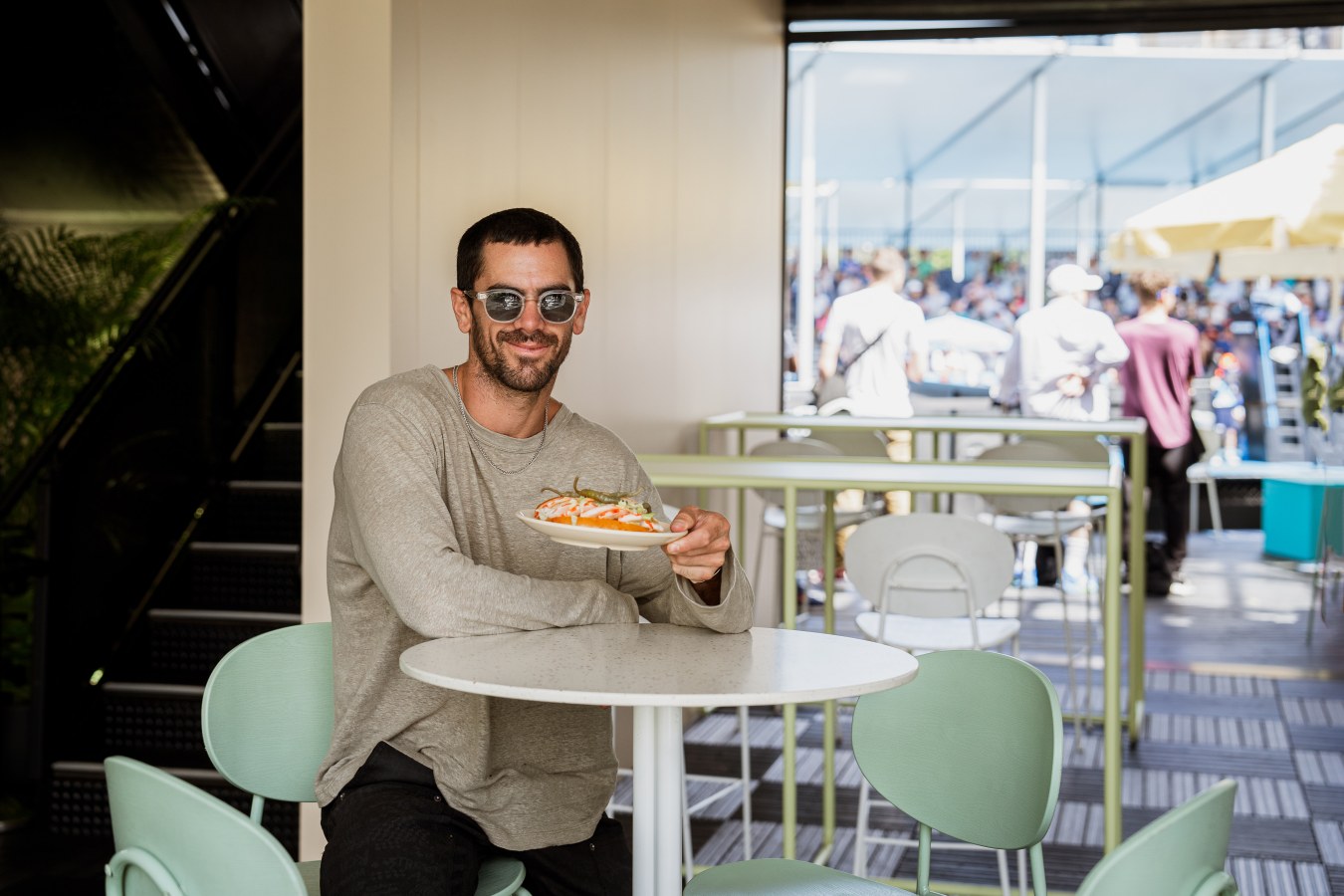Sydney’s revitalised Imax theatre has been open three months and is one of the best-performing Imax theatres around the world. In a Forbes Australia exclusive, we sit down with Imax CEO Richard Gelfond in Darling Harbour, to chat about reopening the cinema doors to one of the largest movie screens on earth.

“Filmmakers make movies, not for television sets, but for the way audiences could best see them on a global scale,” Richard Gelfond tells me, overlooking Darling Harbour.
“And I think people in Sydney have missed out on that. I think there’s a lot of pent-up demand.”
That demand is partly because of the pandemic, of course. But also, because the original Darling Harbour Imax theatre closed its doors in 2016. Sydneysiders were promised it would be back within three years, but delays in completing the Ribbon building that houses the Imax theatre, meant the wait was more than double that.
As it turns out, throwing the doors open to the revitalised Imax theater in November 2023 — complete with one of the world’s largest screens at 692 square metres — enabled the entertainment company to tap into a groundswell of post-pandemic demand.
“Cultural events and communal activities and laughing and crying with people, and seeing artists work in the way it was intended to be seen on a beautiful big screen is a far superior experience to sitting in your house,” says Gelfond.

That is true of audiences in Australia, and also across the globe.
“Our market share has gone up 40% since pre-pandemic. In North America, it’s gone up 50%. It is part of a broader trend, in concerts or sports too, where people really want experiential kind of entertainment,” says Gelfond.
“Cultural events and communal activities and laughing and crying with people, and seeing artists work in the way it was intended to be seen on a beautiful big screen is a far superior experience to sitting in your house.”
Richard Gelfond, Imax CEO
Imax, publicly traded on the New York Stock Exchange, earned over a billion dollars in box office revenue in 2023. It was its second-highest year on record. More than a third of that came from international territories outside the world’s two largest box office markets — the U.S. and China.
The highest-grossing Imax film in the world last year was “Oppenheimer” which took home five Golden Globe awards. Imax Sydney was closed for renovation, but the film was shown at the only other Australian theatre in Melbourne.
“For Oppenheimer, Melbourne was only one of 30 film locations in the world. And it set crazy records — people flew to Melbourne from Asia, people drove hundreds of miles because it was the only IMAX film theatre in this part of the world.”
Imax didn’t show the Barbie movie, but it did run the Taylor Swift’s Eras tour documentary in its Melbourne theatre. The price to sit in an Imax chair and watch a movie is $38.00, considerably more than a regular theatre. Evenso, Gelfond says that Imax is a more cost-efficient way to enjoy a premium experience than other high-end entertainment options.
“It’s an affordable luxury. Taylor Swift stadium concert tickets were going for over $1,000,” says Gelfond. “But Imax is only about USD$25 per ticket. So it’s not like you have to mortgage your house to do it. And I don’t think there’ll be price resistance — once you’ve experienced it, it’s somewhat addictive.”
This month, Imax is showing Madame Web, a film from the Sony Spider-Verse starring Dakota Johnson and Sydney Sweeney. Gelfond described the Spider-Verse as “one of the most visually dazzling franchises in cinema” in an interview with Variety last year.
It is those sorts of action-packed blockbuster, larger-than-life films that do well on enormous screens. Imax’ local partner in Australia, EVT, says that the results from Imax Sydney over the last three months have been strong.
“One of the analogies I use when everybody says ‘people will sit at home and stream forever,’ is… you have a kitchen, but you still like to go to restaurants.”
Richard Gelfond, Imax CEO
“IMAX Sydney has been one of the top performing cinemas nationally since opening, especially for recent blockbusters Wonka, Napoleon, Aquaman and the Lost Kingdom,” says Amy Wagner, the GM of Communications at EVT.
IMAX Sydney theatre uses laser projection, and has seating options that include couples seats, fuller recliners and for those that went to pay even more, a private box.
Gelfond acknowledges that film and television content is now streamed into people’s homes — and that can be potentially disruptive to audiences attending theatres to watch entertainment. He says there is still demand for premium in-person experiences, however.
“One of the analogies I use when someone says ‘people will sit at home and stream forever,’ is… you have a kitchen, but you still like to go to restaurants,” says Gelfond.
Jeff Bock, an analyst with Exhibitor Relations, agrees that paying a premium for an Imax experience is something audiences will do when going to see a blockbuster film.
“This is how the theatrical system works right now–you have a blockbuster, you want to maximize the cash flow. Best way to do that is IMAX/PLF screens. Audiences are gladly paying for that premium experience,” Bock tweeted last year.
Look back on the week that was with hand-picked articles from Australia and around the world. Sign up to the Forbes Australia newsletter here or become a member here.

